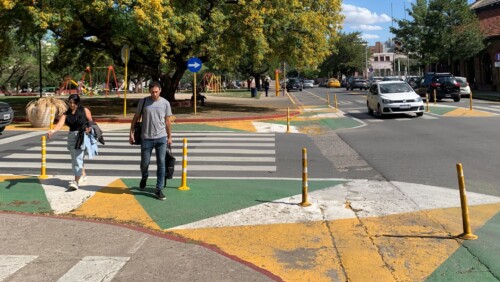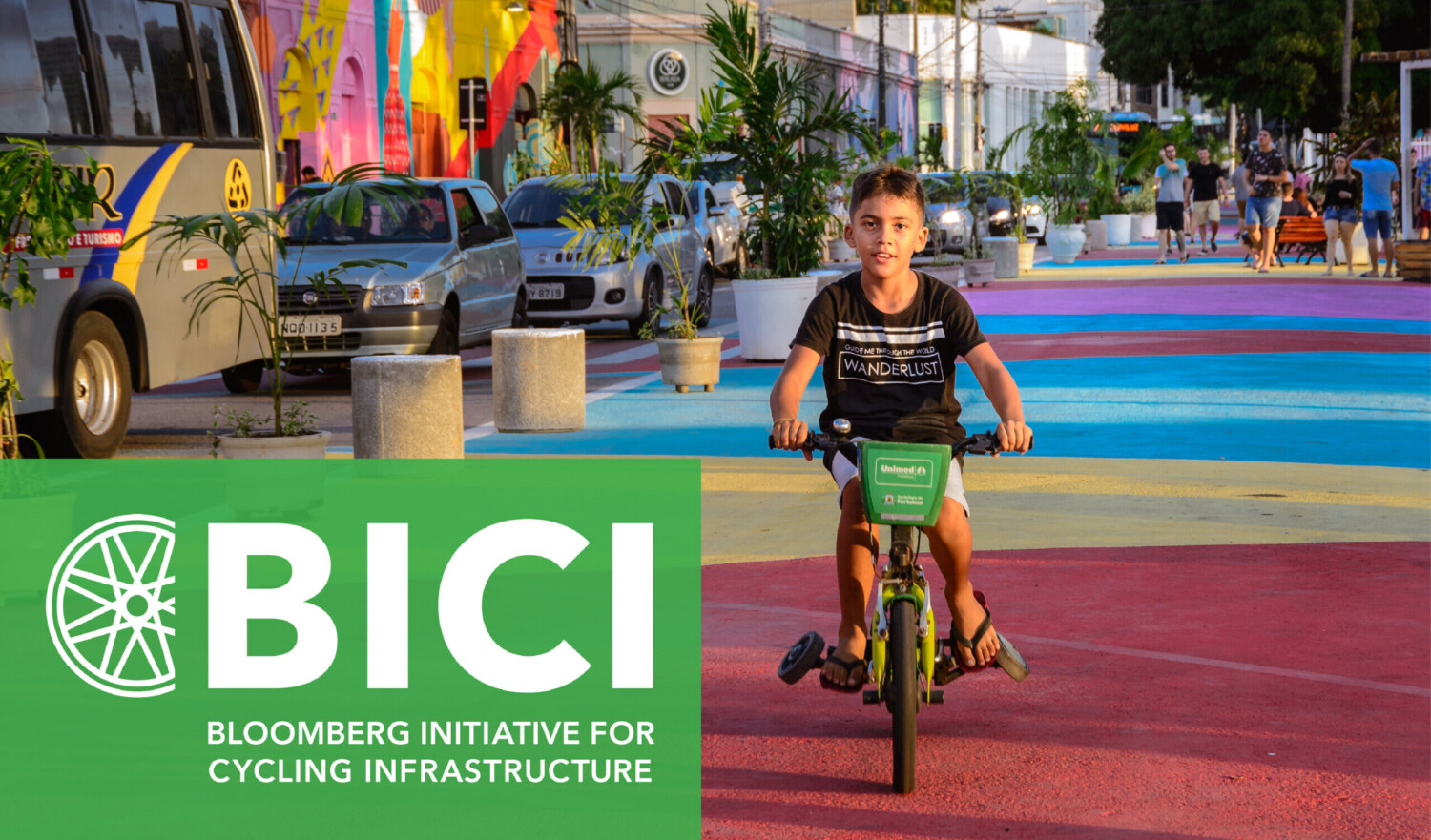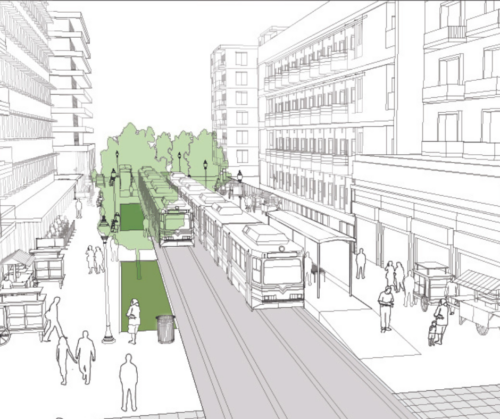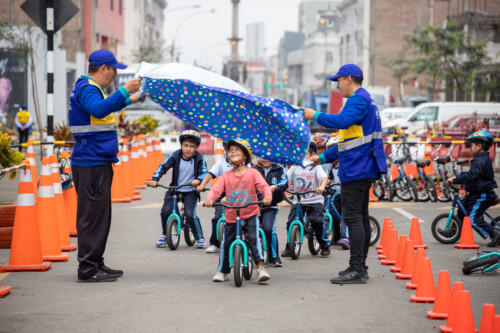On Friday, June 2, Bloomberg Philanthropies announced the 10 selected Bloomberg Initiative for Cycling infrastructure (BICI) cities. Led in partnership with GDCI, BICI will award funding up to $1 million to the cities and work alongside city partners to accelerate the delivery of transformative, cycle-friendly street designs for the people that use them.
The 10 selected BICI cities are:
- Fortaleza, Brazil—selected for $1 million funding
- Addis Ababa, Ethiopia
- Bogotá, Colombia
- Lisbon, Portugal
- Milan, Italy
- Mombasa, Kenya
- Pimpri-Chinchwad, India
- Quelimane, Mozambique
- Tirana, Albania
- Wellington, New Zealand
“Cycle lanes aren’t amenities, they are essential infrastructure for cities,” said Janette Sadik-Khan, Transportation Principal at Bloomberg Associates and former commissioner of the New York City Department of Transportation, and founder of GDCI. “These grants will help these 10 cities take the decisive action necessary to transform streets and turn the corner on traffic violence, pollution and climate change.”
Meanwhile Skye Duncan, executive director of GDCI, on the announcement day, tweeted: “Safer, more accessible, and more enjoyable cycle experiences for all ages and abilities coming soon to millions more people!”
The cities’ proposed projects are as follows:
Fortaleza, Brazil will develop 180 kilometers of cutting-edge cycling infrastructure to invite more community members to cycle. GDCI has also supported Fortaleza through the Bloomberg Initiative for Global Road Safety and their Streets for Kids programs.
Addis Ababa, Ethiopia will double the number of protected cycle tracks to achieve Africa’s largest cycle network. GDCI has previously supported Addis Ababa through the Bloomberg Initiative for Global Road Safety. Through our work in Addis Ababa on the Lebu-Jemo cycle corridor, GDCI supported the city to develop their City Master Plan, their Non-Motorized Transport Strategy and Implementation Plan, and their Road Safety Strategy. We’re also proud to note that Ethiopia was the first African country to endorse the Global Street Design Guide.
Bogotá, Colombia will co-design new infrastructure with children to revitalize a low-income neighborhood and engage young residents. GDCI has previously supported Bogotá through the Bloomberg Initiative for Global Road Safety, supporting cycling, pedestrian, and transit projects. The city invested around $10.3 million in 11 urban design and road safety projects supported by GDCI during the period 2016 – 2020 converting 17,000 m2 of vehicular spaces for safe transit pedestrian use.
Lisbon, Portugal will roll-out new solutions to increase the diversity of residents cycling throughout the city.
Milan, Italy will build sustainable cycle corridors that connect over 40 schools. GDCI has supported street design and cycling efforts in Milan in partnership with Bloomberg Associates since 2018. GDCI worked with the city of Milan in May 2023 to launch the second phase of the hugely successful Piazza Aperte program which the BICI project will build upon.
Mombasa, Kenya will protect and connect a cycle network along key corridors with high cycling volumes. GDCI is also currently supporting Mombasa through the Bloomberg Initiative for Global Road Safety. A high percentage of the Mombasa population use walking as their main form of moving around and the lack of formal transport makes cycling even more necessary and attractive.
Pimpri-Chinchwad, India will launch a neighborhood model for a 15-minute city, starting with cycling. GDCI is also currently supporting the State of Maharashtra through the Bloomberg Initiative for Global Road Safety.
Quelimane, Mozambique will build new cycling infrastructure that includes protected cycling lanes, pedestrian space, and unique bicycle taxi parking to support non-motorized travel.
Tirana, Albania will create an all-ages cycling network through the implementation of safe intersection design. GDCI has previously supported Tirana through its Streets for Kids program and translating the Designing Streets for Kids guide into Albanian.
Wellington, New Zealand will increase the number of cycle lanes in the city by 160 percent using resident input to inform planning and development.
GDCI is looking forward to working with the 10 selected cities to realize their ambitious cycling infrastructure goals.



